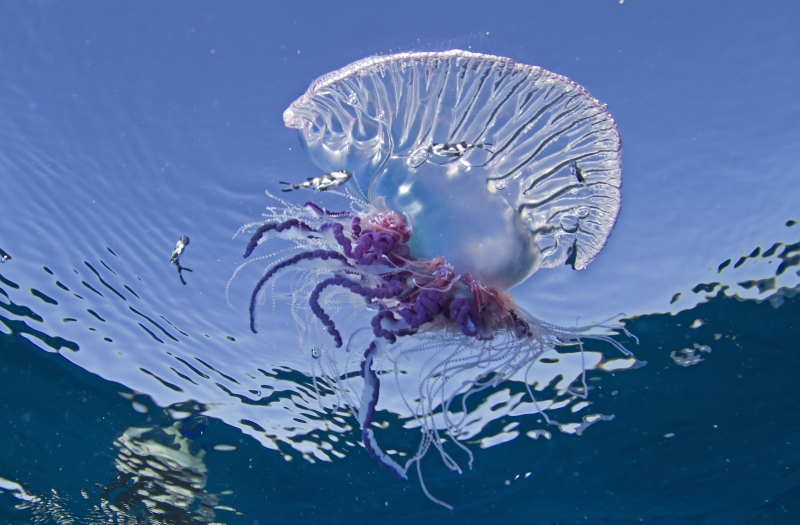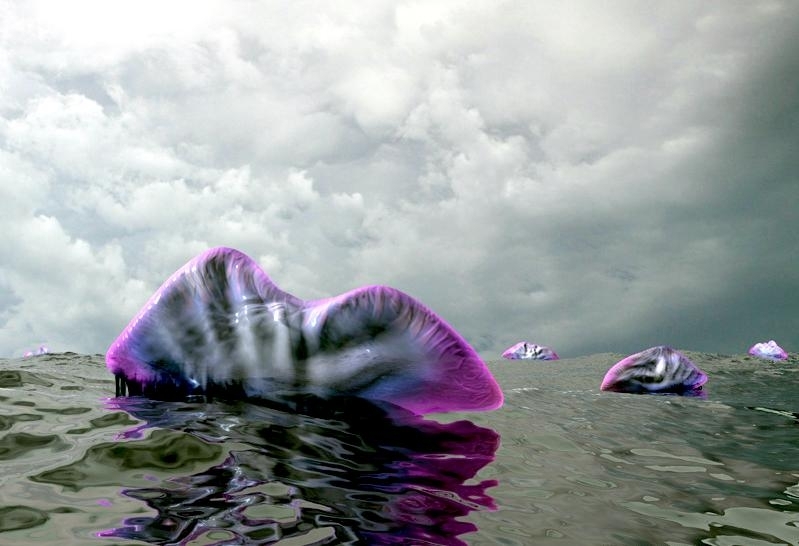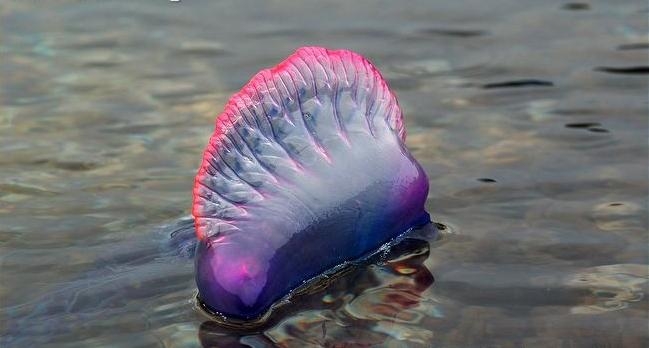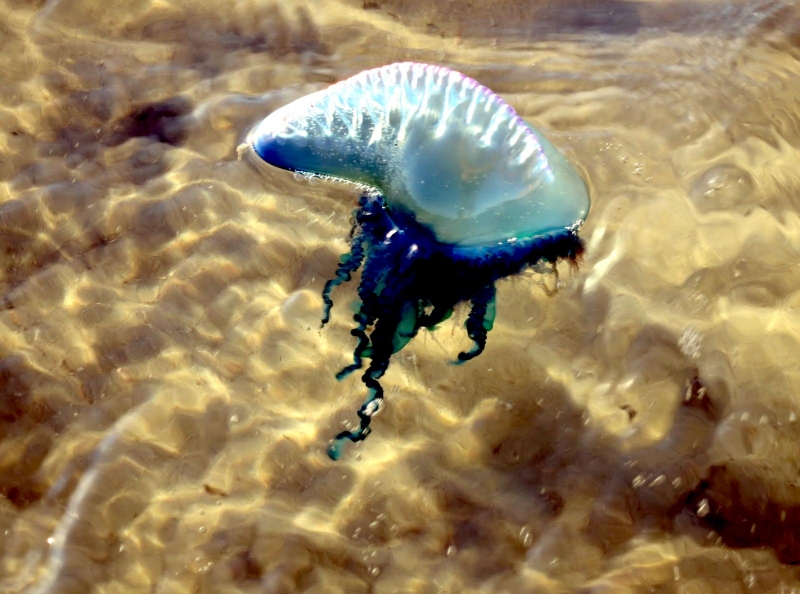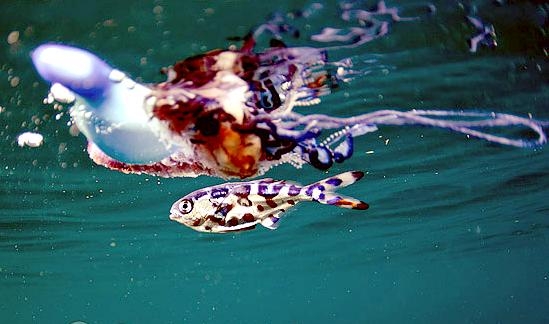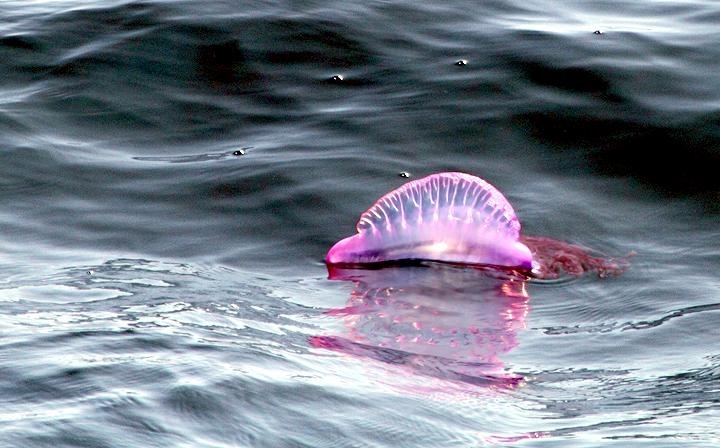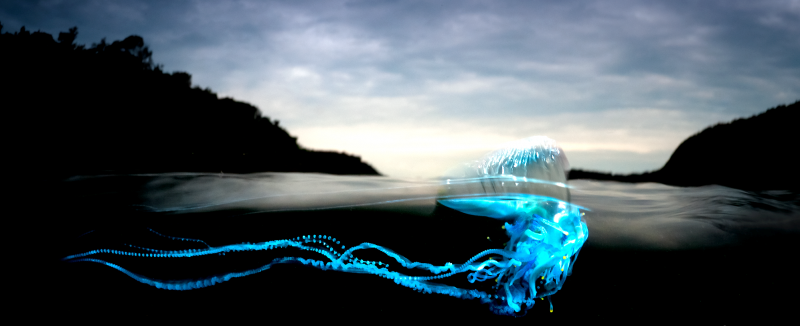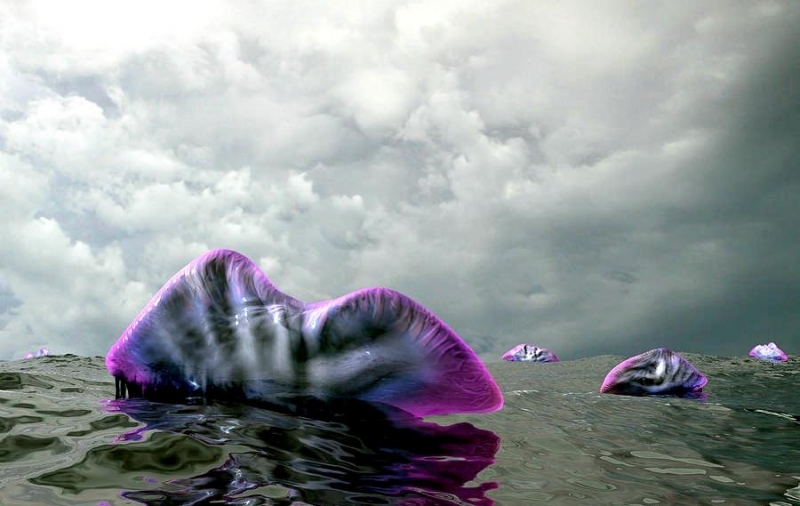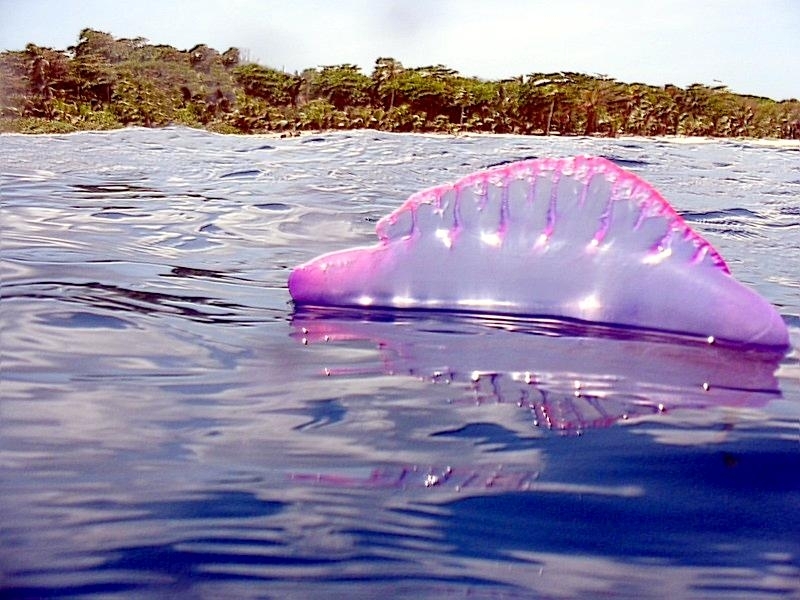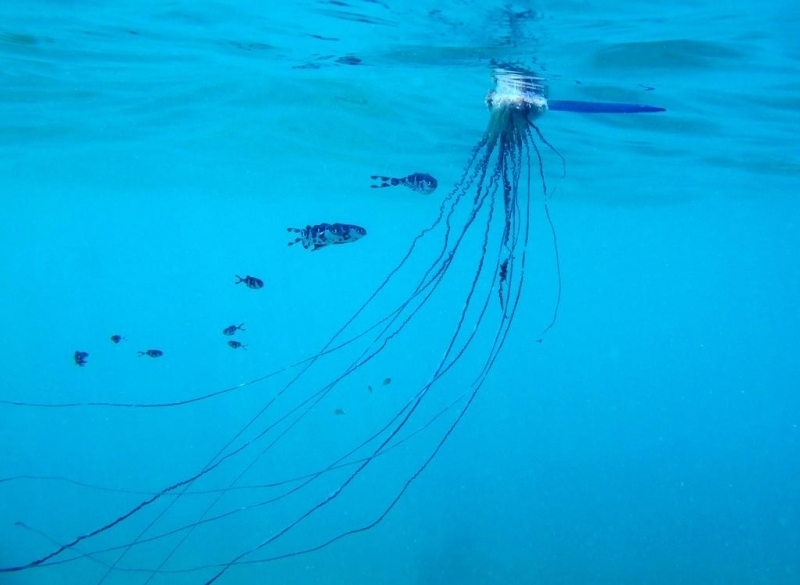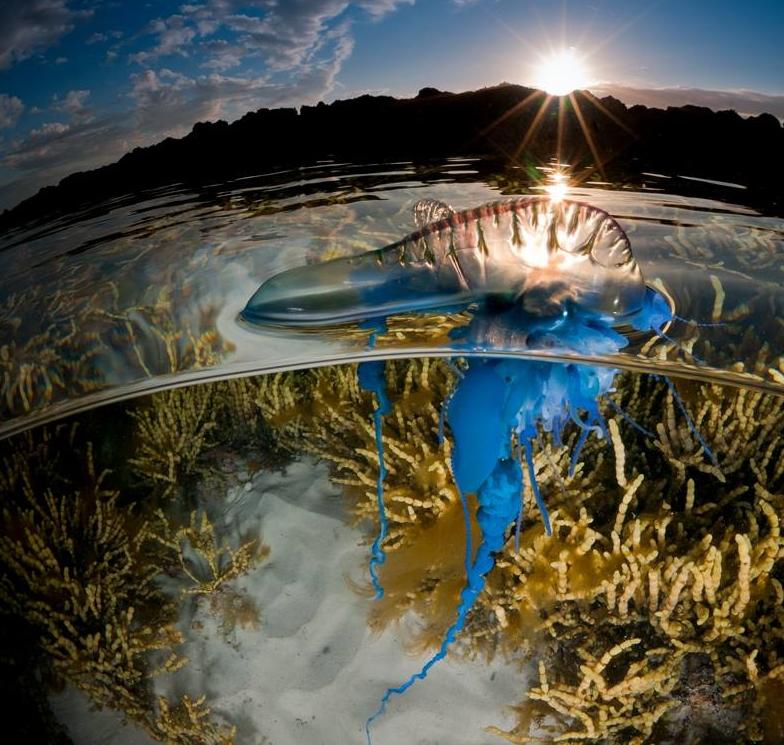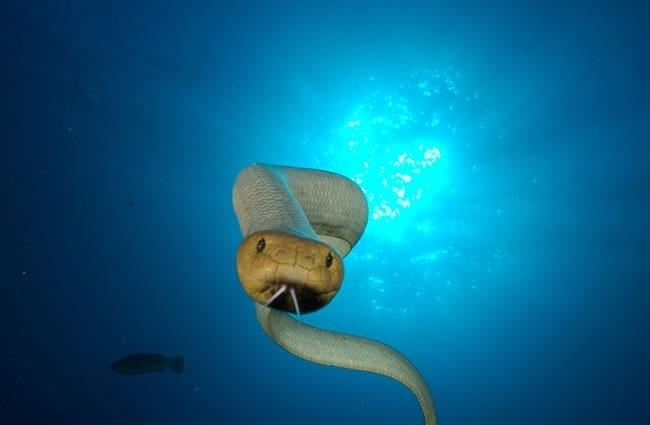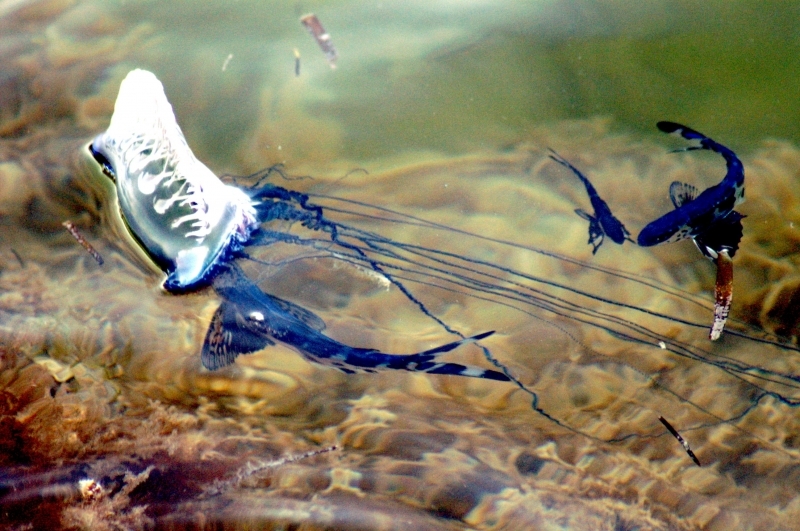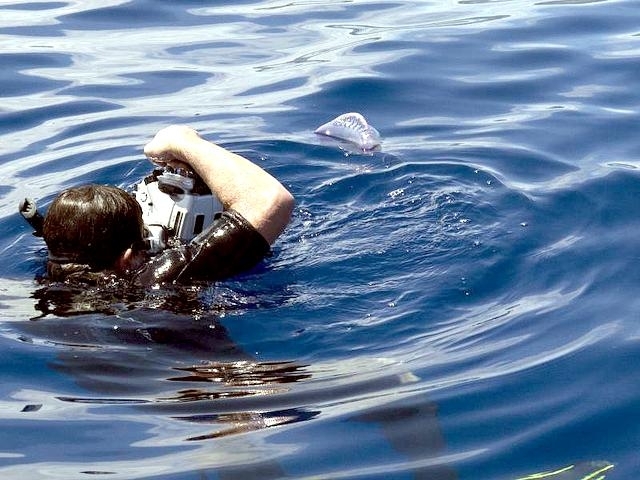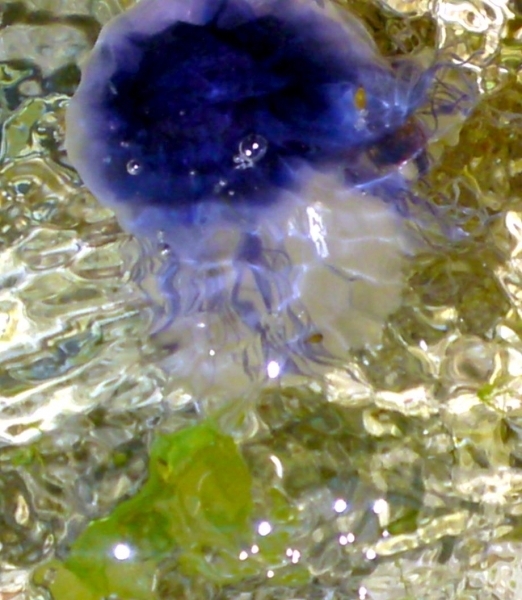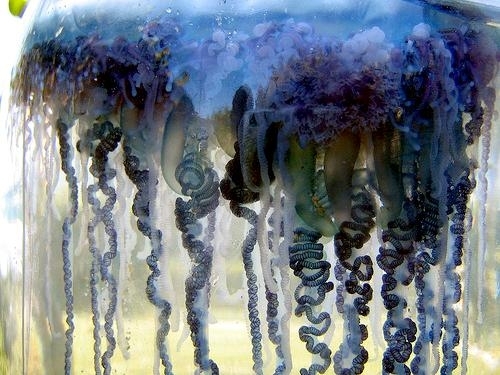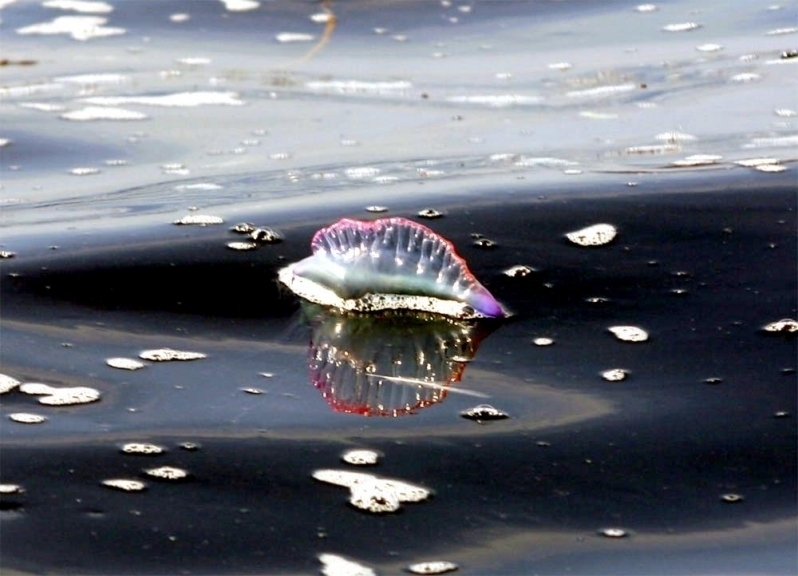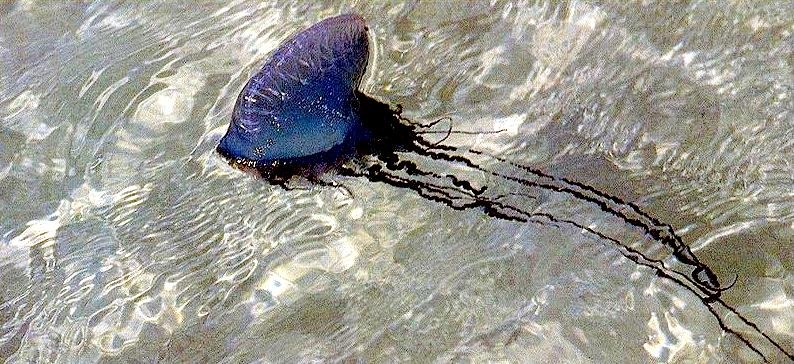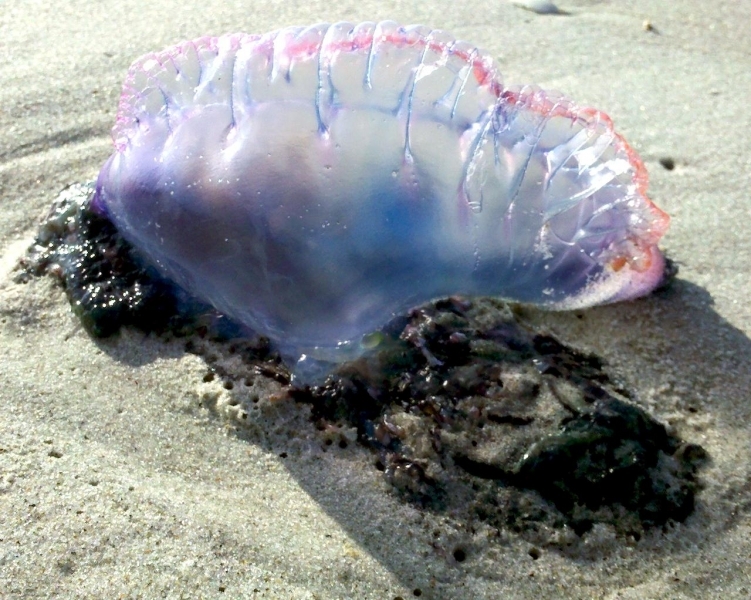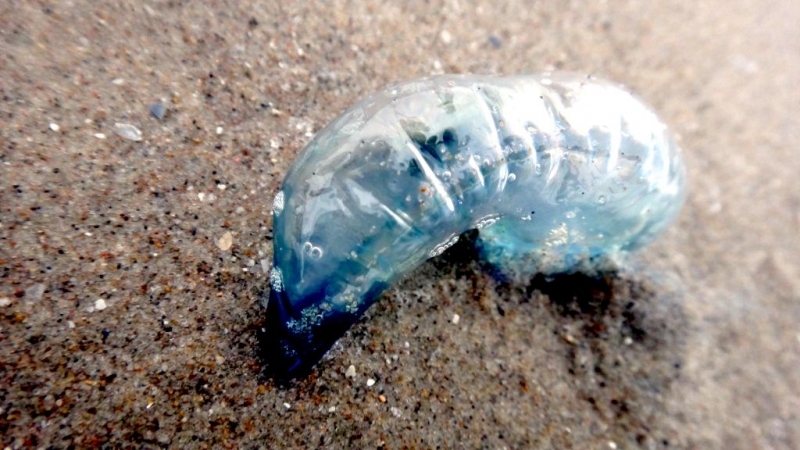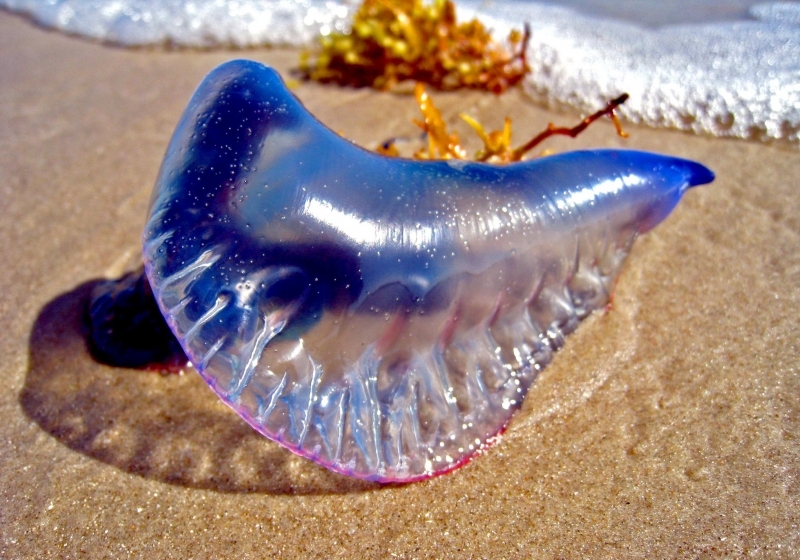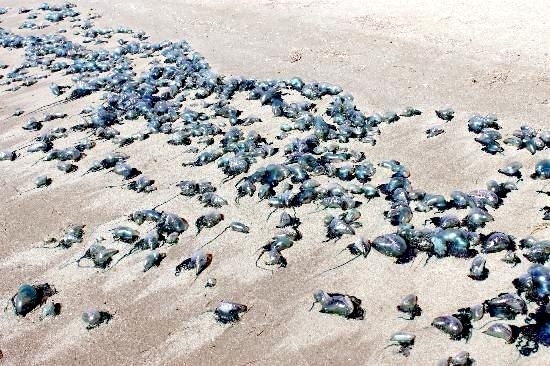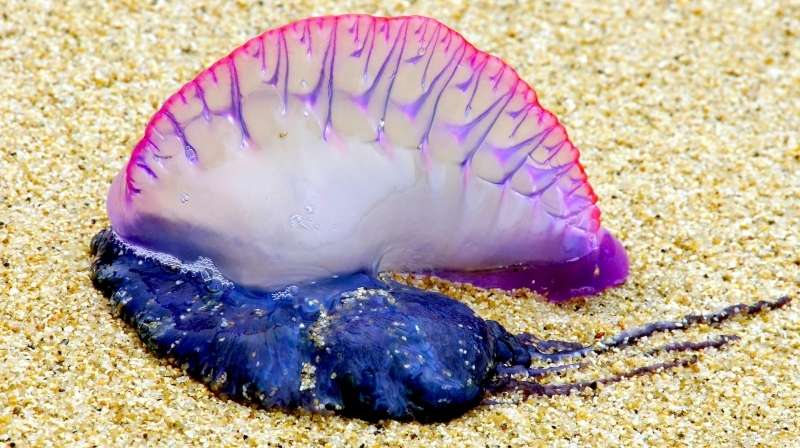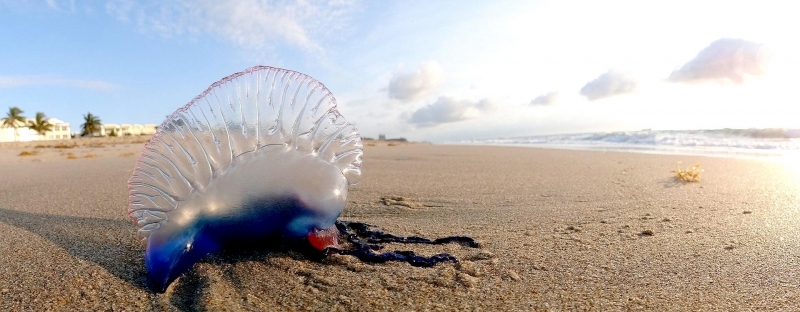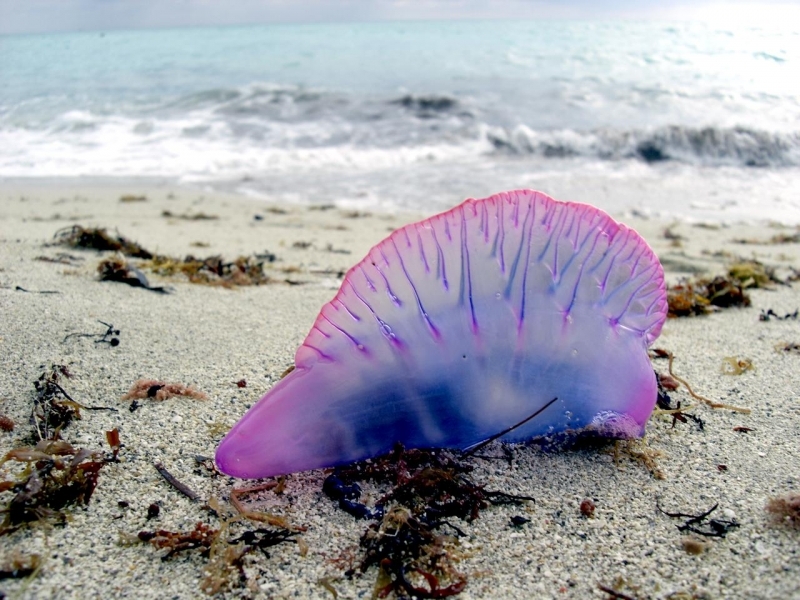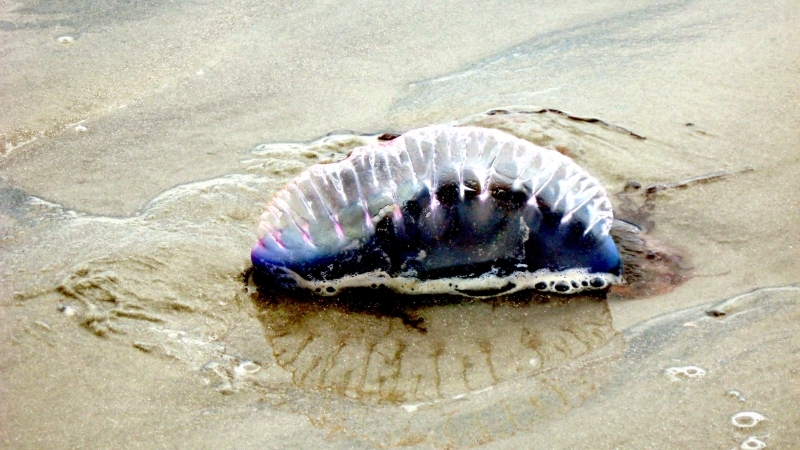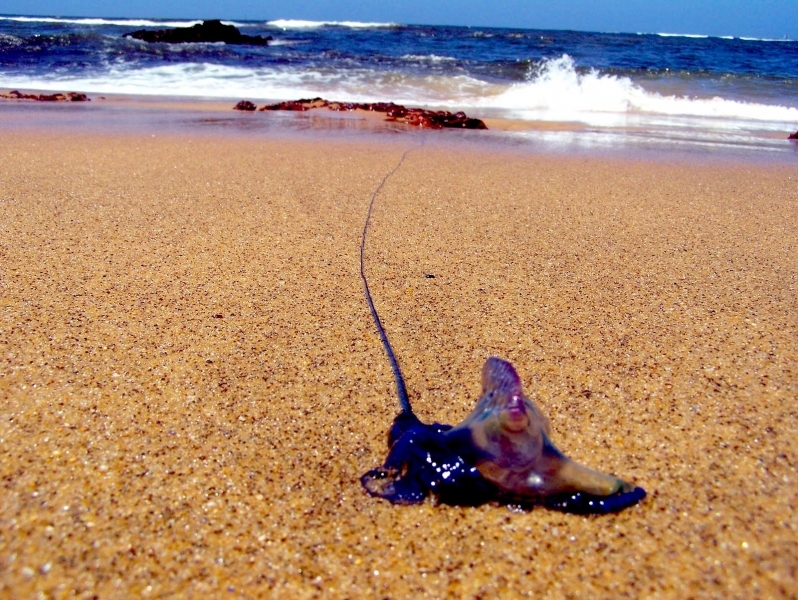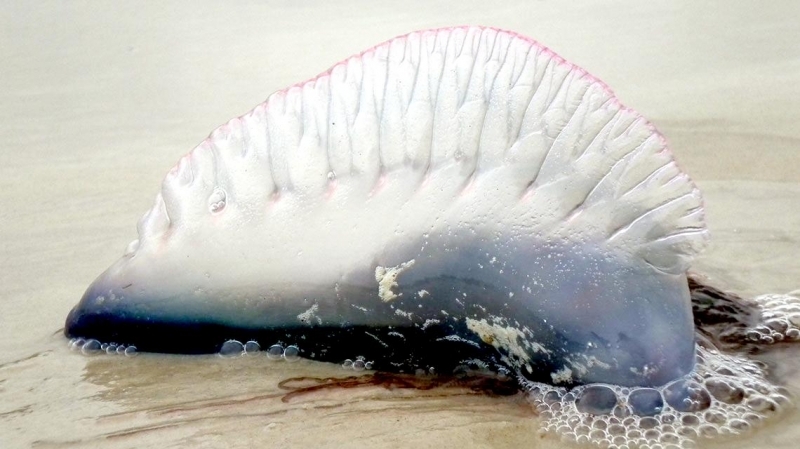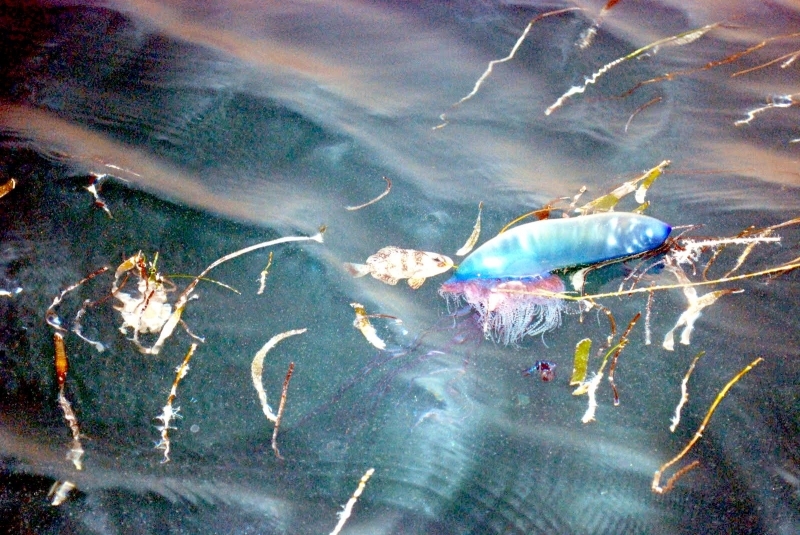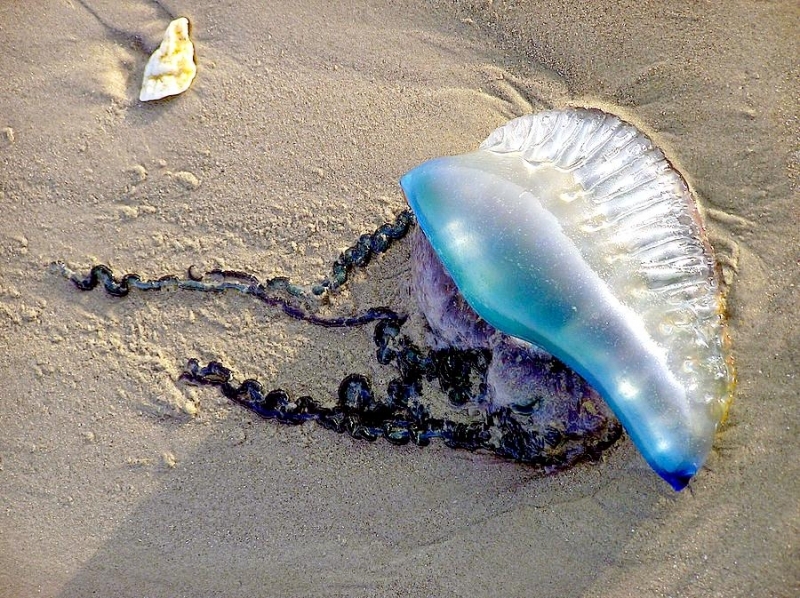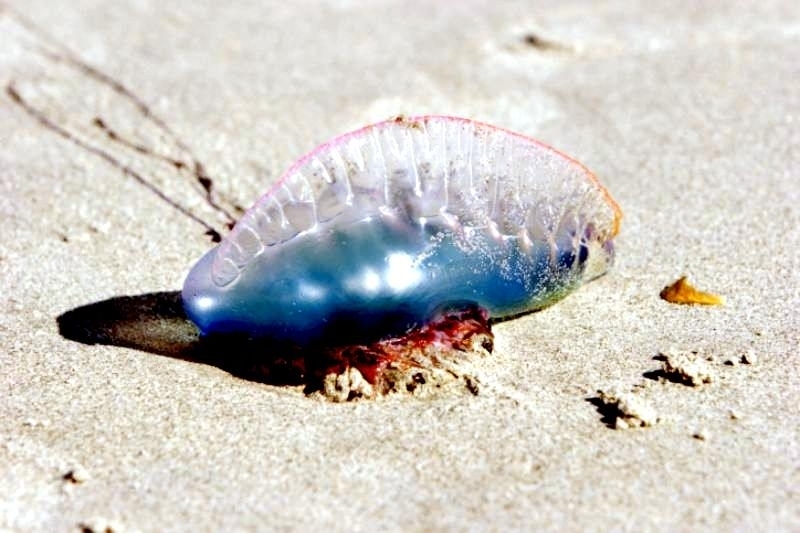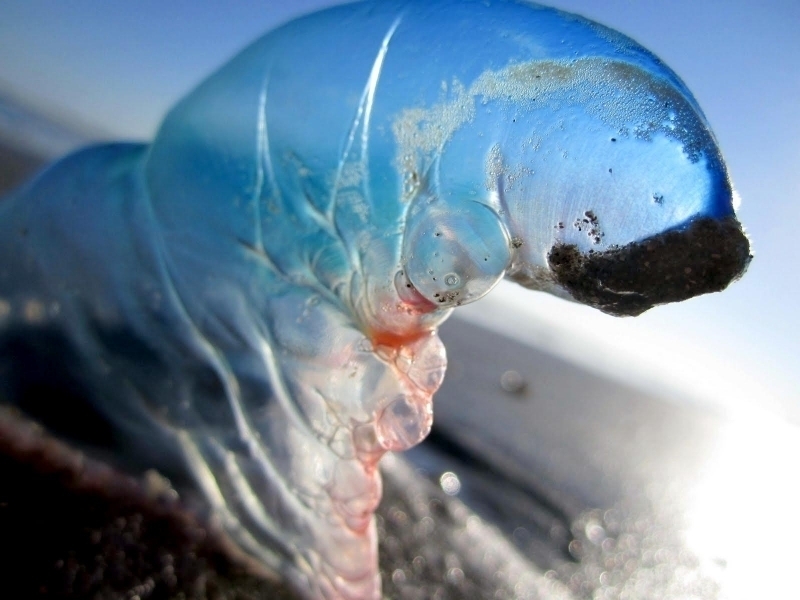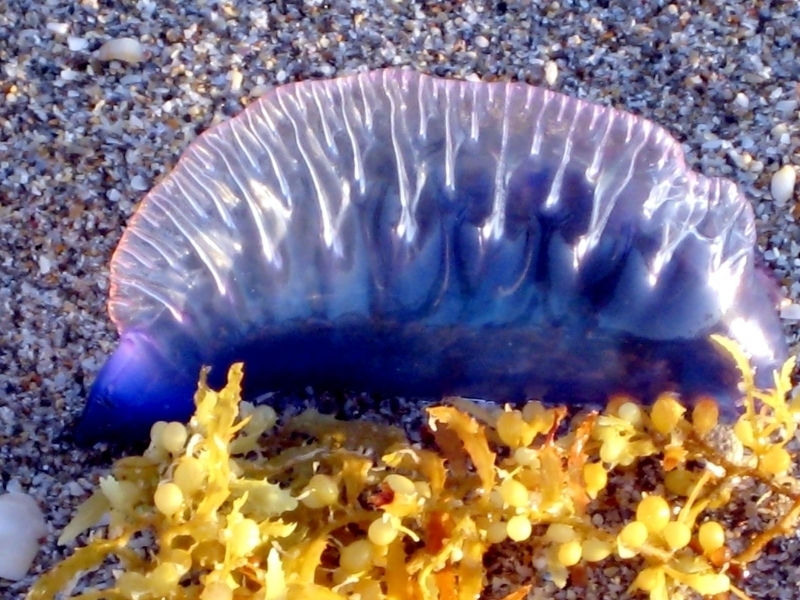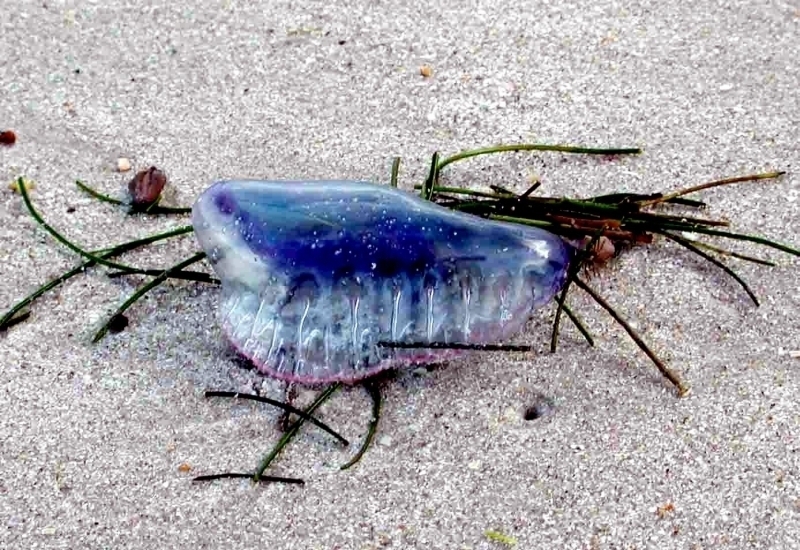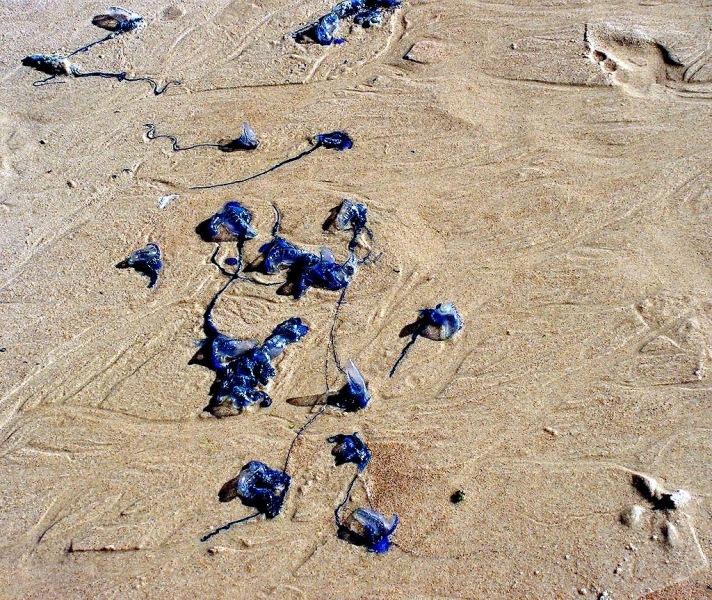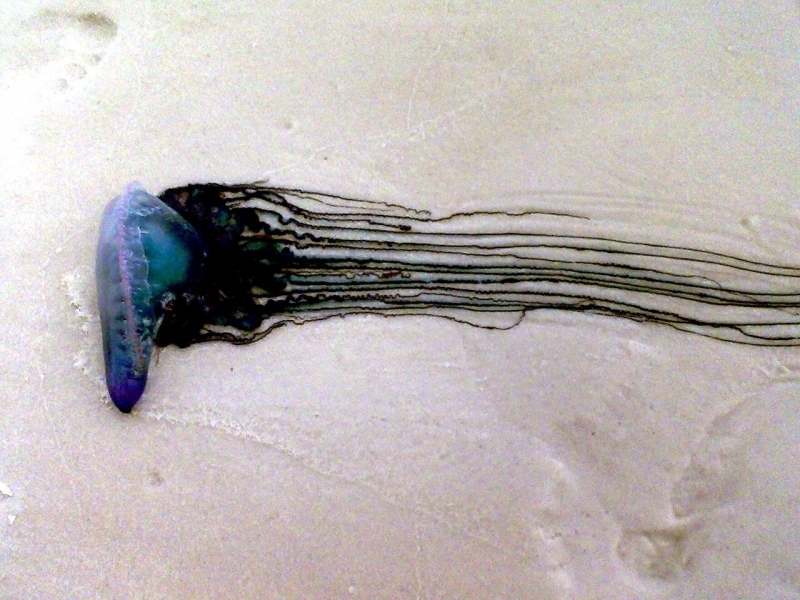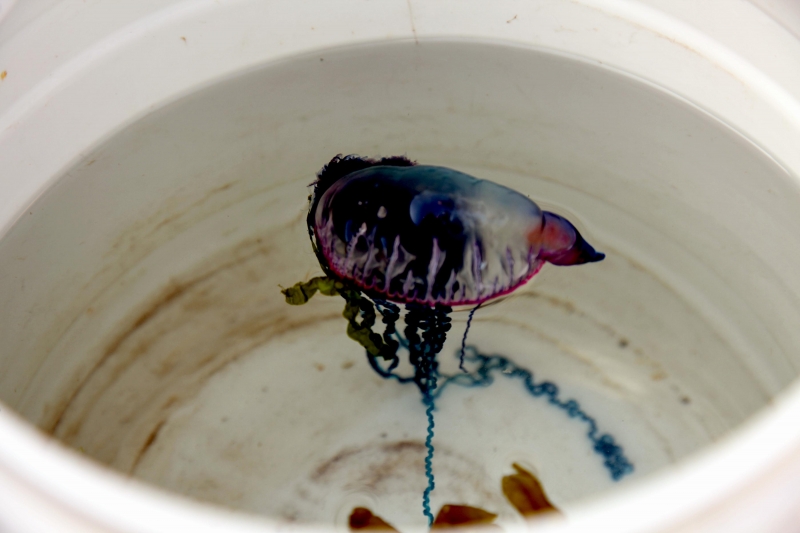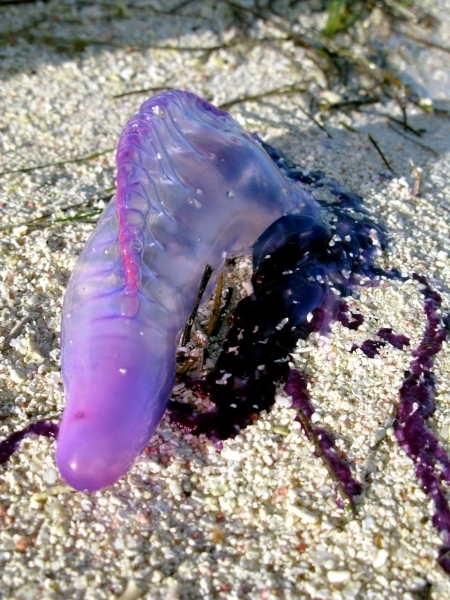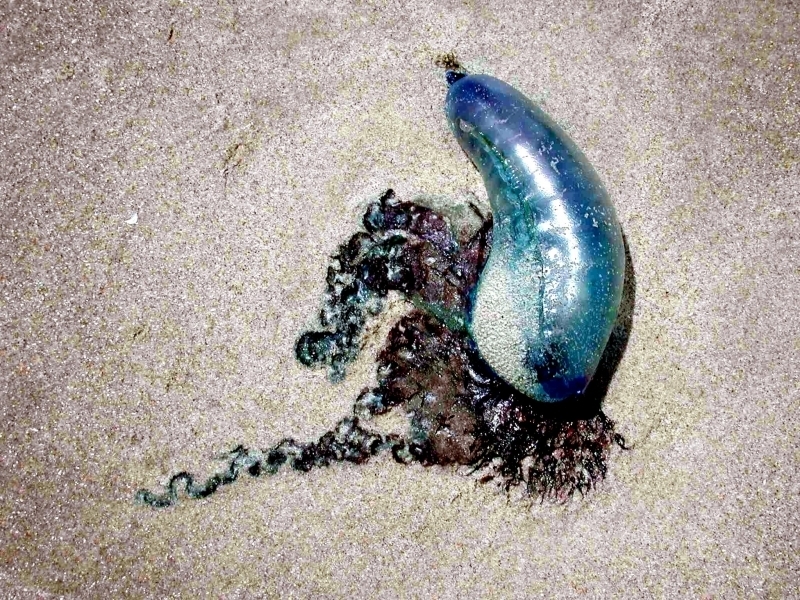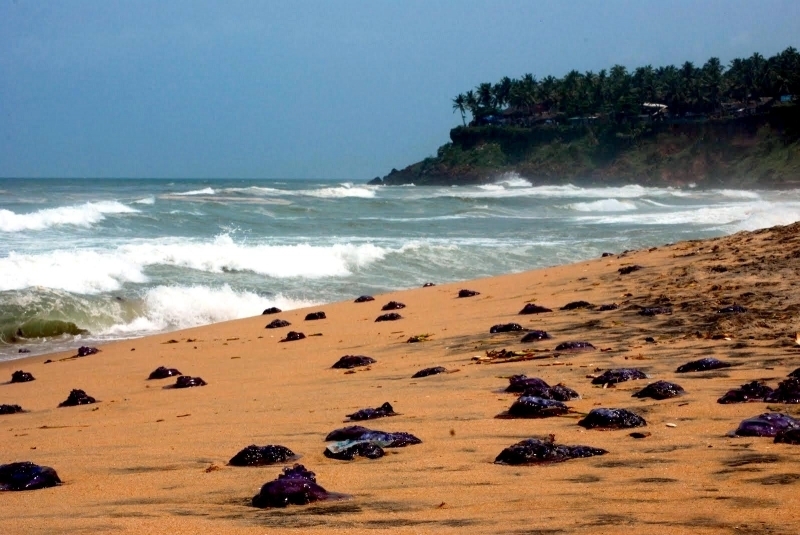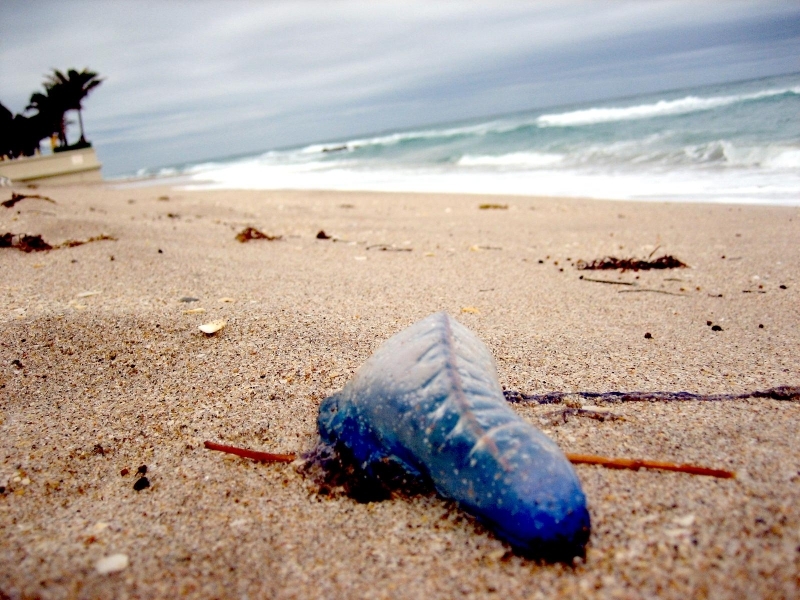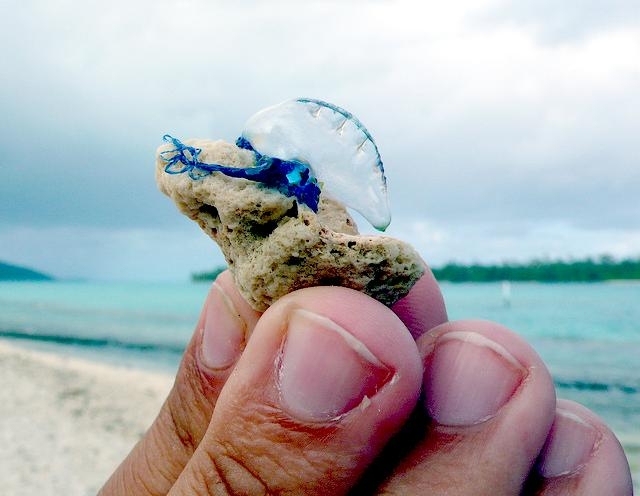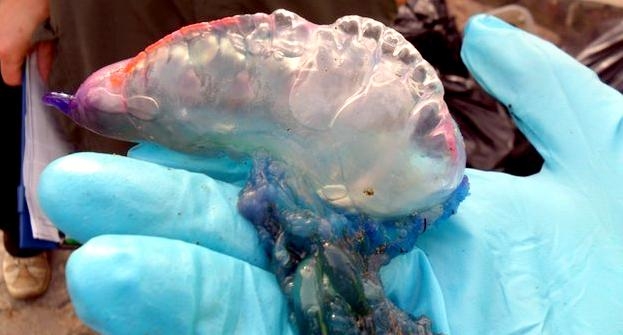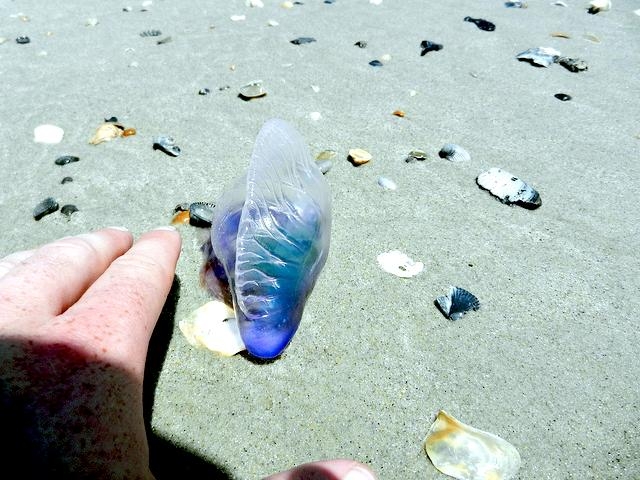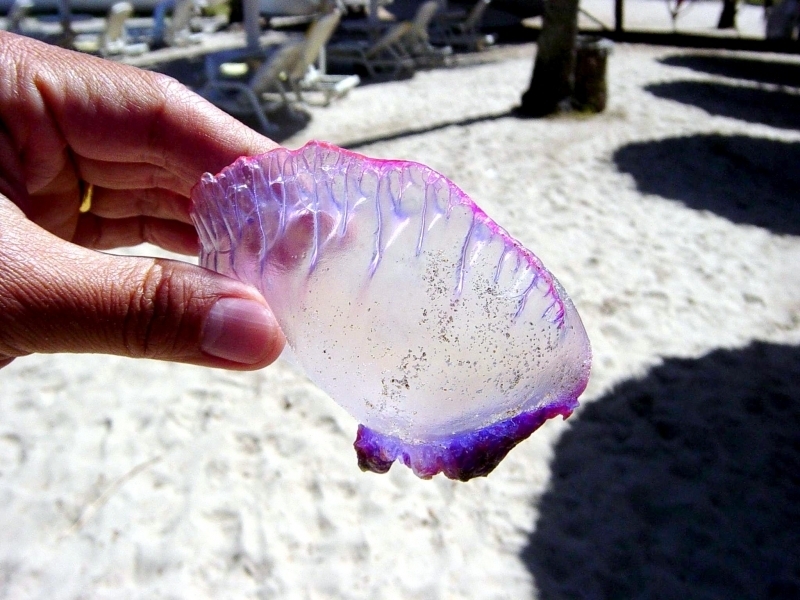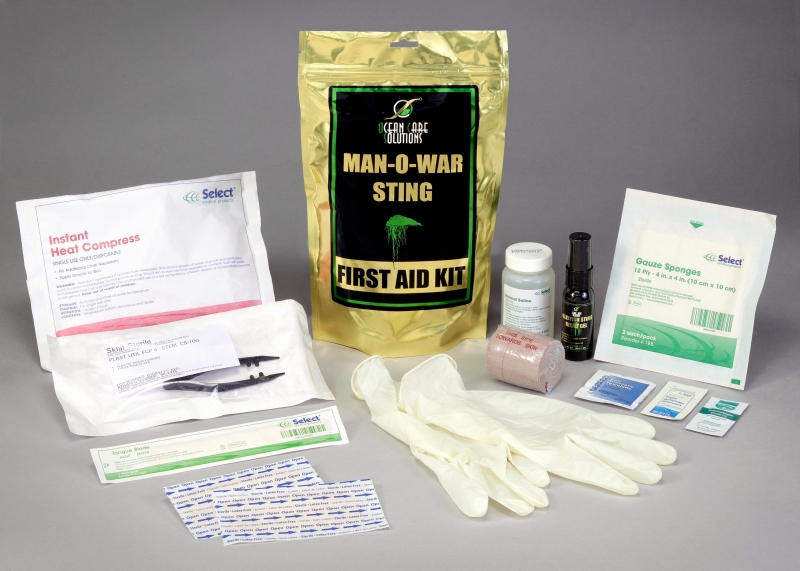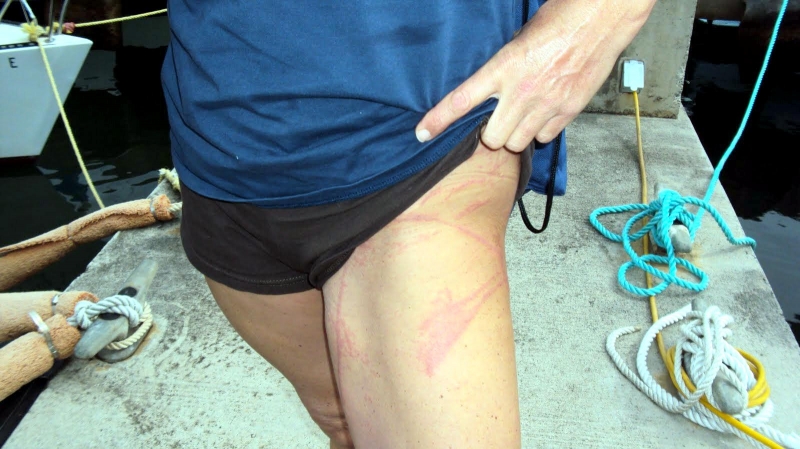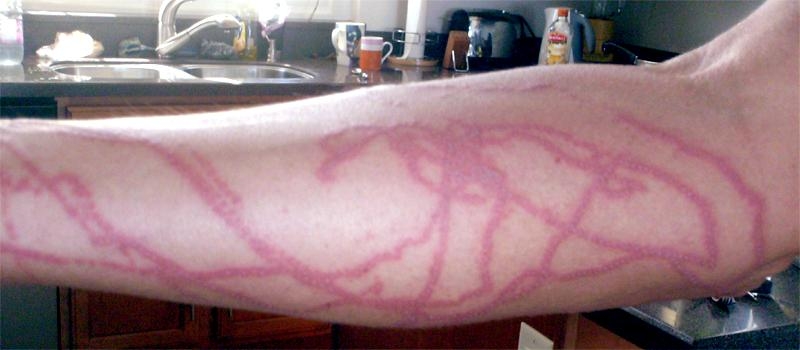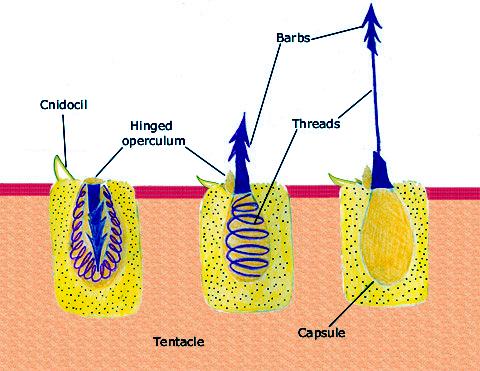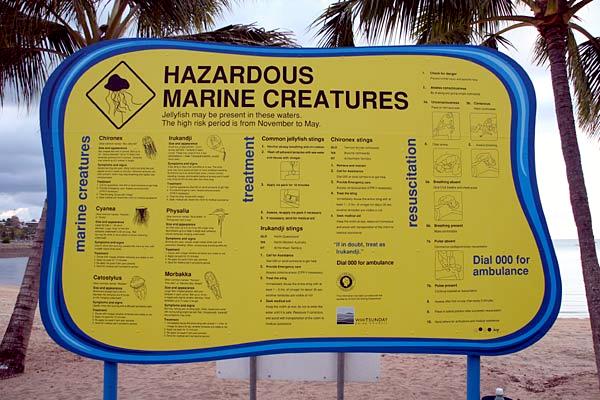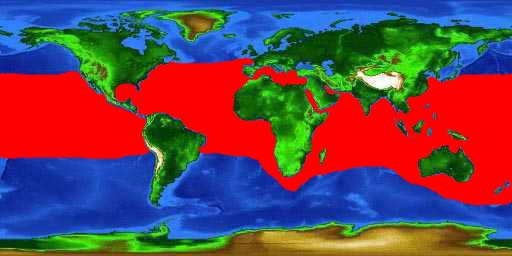“Physalia physalis”
Right from the start, the proper scientific name for these animals is “Sea Jelly” not “Jellyfish”. They are invertebrates and not a fish nor do they have a backbone. The Portuguese Man-of-War Sea Jelly is a jelly-like marine animal and is also known as the “Blue Bottle” Sea Jelly in some parts of the world. In fact, these sea creatures are 4 different polyps that rely on each other to survive. Man-of-Wars are well-known for their painful & powerful sting. They can be found in warm water all over the world. This stinging animal is called the Portuguese Man-of-War Sea Jelly because it looks a bit like a Portuguese battleship with a sail. The body is a gas-filled float which can be blue to pink. It can be anywhere from 3-12 inches. Underneath the float are clusters of polyps which coiled tentacles hang off of. The stinging tentacles can be up to 165 feet long. Sometimes the gas-bag will flop over in the water but its muscles pull itself back up. The crest above the float is only a few inches tall and acts like a sail. It relies on the wind to move it from one place to another.
Since it has no control over where it goes, Portuguese Man-of-Wars are often found washed ashore especially during winter or when the wind is bad. The bag that keeps it afloat must be kept wet. If the bag dries, then the Man-of-War dies. To keep it from drying out, the animal dips its sail in the water once every so often. When it’s in the water, the Man-of-War Sea Jelly uses the tentacles to capture & paralyze small fish, plankton and crayfish. By contracting its muscles, the Man-of-War’s tentacles can move fairly quickly. The stings of the Portuguese Man-of-War aren’t just painful to their prey, it can cause some serious pain and effects to people too. This includes fever, shock as well as heart & lung problems. If you’re stung by a Man-of-War Sea Jelly, pick off any visible tentacles, then rinse with freshwater or saltwater and put ice on the area. Because you might go into shock, it is important to get medical help as soon as possible as the toxins from the tentacles are about 75% as powerful as Cobra venom. Even a dead Portuguese Man-of-War stranded on the beach can still sting, so don’t touch them and keep out of the water if they are present.
